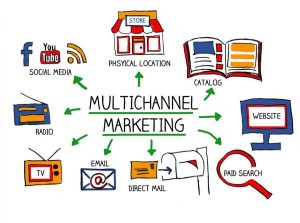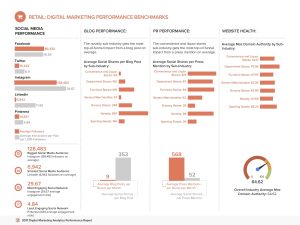
Email marketing campaigns are an essential tool for businesses to reach out to their target audience and promote their products or services effectively. In today’s digital age, email marketing has become a popular and cost-effective method to connect with customers. This article explores the various aspects of email marketing campaigns and how they can benefit businesses.
Importance of Email Marketing Campaigns
Email marketing campaigns allow businesses to directly communicate their message to their customers’ inbox. This direct channel of communication ensures that the message reaches the targeted audience, unlike other marketing channels that have lower engagement rates. Emails can be personalized, allowing businesses to tailor their message to each recipient, making them feel valued and increasing the likelihood of conversion.
Creating Effective Email Campaigns
Design and content are crucial elements that determine the success of an email marketing campaign. The email layout should be visually appealing and consistent with the business’s branding. Compelling content that captures the reader’s attention and establishes a connection is essential.
Segmentation and Personalization
Segmenting the email list and personalizing the content according to the recipient’s preferences and interests greatly improves the effectiveness of the campaign. By dividing the audience into segments based on demographics, purchase history, or website activity, businesses can send tailored messages that resonate with each group, maximizing engagement and conversions.
Call to Action
A clear and compelling call to action (CTA) is essential to encourage readers to take the desired action, such as making a purchase or signing up for a newsletter. The CTA should be prominently displayed and use action-oriented language to create a sense of urgency and drive conversions.
A/B Testing
A/B testing is an effective technique to optimize email campaigns. By testing different subject lines, layouts, or CTAs, businesses can analyze which elements resonate better with their audience and refine their campaigns accordingly. Regular testing ensures continuous improvement and better results over time.
Benefits of Email Marketing Campaigns
Cost-effective
Email marketing campaigns are highly cost-effective compared to traditional advertising methods. It eliminates the need for printing, postage, or distribution costs. Affordable email marketing tools and automation software make it accessible to businesses of all sizes, allowing them to reach a wider audience within their budget.
Targeted Reach
Email campaigns allow businesses to target specific segments of their customer base, sending tailored messages to each group. This targeted approach increases the chances of engagement and conversions since the content is relevant and appeals to the recipient’s interests. By delivering personalized content, businesses can build stronger relationships with their customers and enhance their brand loyalty.
Measurable Results
Email marketing campaigns provide businesses with detailed insights and metrics that help measure the effectiveness of their strategies. Open rates, click-through rates, and conversion rates can be tracked, allowing businesses to analyze the performance of their campaigns and make data-driven decisions to improve future campaigns. Adjustments can be made in real-time to maximize the impact and continuously optimize the campaign’s results.
High ROI
Due to the low cost involved and the ability to generate personalized content, email marketing campaigns offer a high return on investment (ROI). The ability to target and reach interested customers directly results in a higher conversion rate compared to traditional advertising methods. With proper planning and execution, businesses can achieve significant results through email marketing campaigns.
Key Considerations for Email Campaign Success
Compliance with Email Regulations
Businesses must ensure they comply with the various email regulations, such as obtaining consent from the recipients and providing an option to unsubscribe. Failure to comply with these regulations can lead to legal ramifications and damage the reputation of the business. It is vital to stay updated on email marketing laws and adopt best practices to maintain integrity and trust with customers.
Mobile Optimization
With the majority of emails being opened on mobile devices, it is crucial to optimize email campaigns for mobile viewing. Responsive design and mobile-friendly layouts ensure that emails are easily readable and visually appealing on various screen sizes. Neglecting mobile optimization can result in lower engagement and missed opportunities to connect with customers.
Email Automation
Email automation can streamline the email marketing process, saving time and effort. By setting up automated emails triggered by specific actions, businesses can send targeted messages at the right time, nurturing leads, and providing relevant information to move customers through the conversion funnel. Automation helps increase efficiency and allows businesses to maintain a consistent brand presence.
Benchmarking and Continuous Improvement
Regularly monitoring and benchmarking email campaign metrics against industry standards and competitors can provide valuable insights. By analyzing the performance and taking necessary actions, businesses can keep up with industry trends, refine their strategies, and continuously improve their email marketing campaigns for better results.
Conclusion
Email marketing campaigns offer a powerful and cost-effective way for businesses to reach out to their target audience, engage with customers, and drive conversions. By creating personalized, visually appealing content, and adopting best practices, businesses can maximize the impact of their email campaigns. With measurable results and a high ROI, email marketing remains a crucial component in any comprehensive digital marketing strategy.

